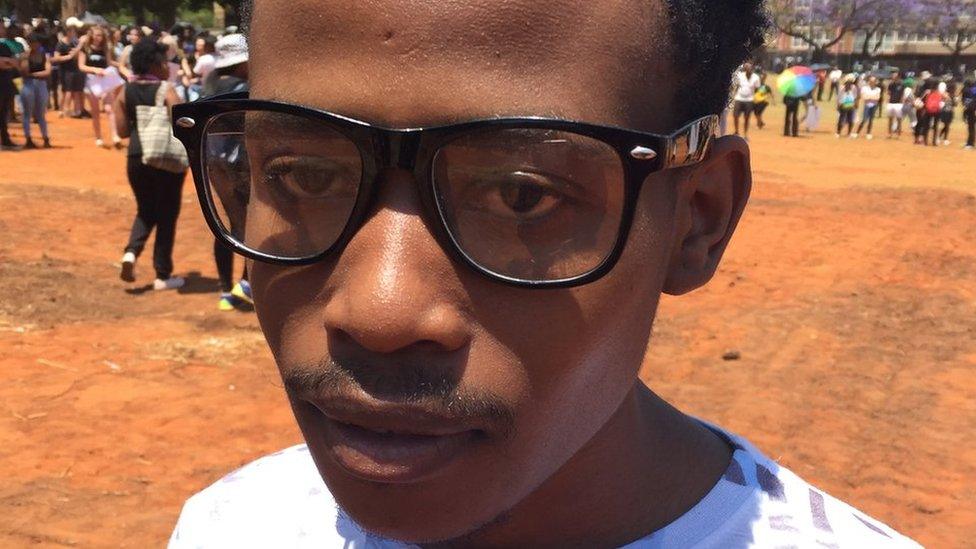Why South African students want to be taught in English
- Published
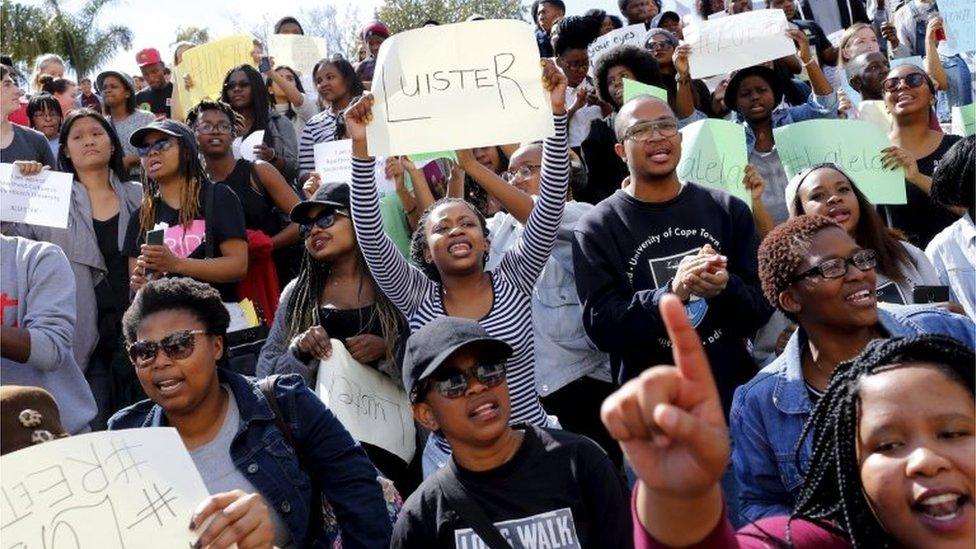
Students have campaigned for the university to change its language policy
Stellenbosch University's plan to drop Afrikaans as the language of instruction and teach in English has been warmly received, not only by students who are enrolled at the institution but by the rest of South Africa.
This is because it has always been accused of being one of the most untransformed academic institutions in post-apartheid South Africa, and for decades was regarded as the heart of Afrikanerdom.
The town itself is the second-oldest European settlement in the Western Cape and was named after Simon van der Stel, who was a governor of the Dutch Cape Colony.
White supremacists such as John Vorster, a former apartheid prime minister, studied at the university.
It was a little enclave protecting the interests of the architects of apartheid - and by extension the language of the oppressor, Afrikaans. It was exactly this use of the language which sparked the 1976 student uprisings in Soweto.
Dropping Afrikaans means that, psychologically and symbolically, the walls of apartheid are still crumbling 21 years after racial segregation was officially removed from the statute books.
Many black students felt unwelcomed at a university in their own country of birth.
The very word apartheid, which has now been internationalised and is in the Oxford Dictionary, is in fact an Afrikaans word.
The language is still spoken by millions but this move will make the many more millions who do not speak it feel welcomed in one of the best academic institutions on the African continent.

South Africa's top six mother-tongue languages:
Zulu: 22.7%, Xhosa: 16%, Afrikaans: 13.5%, English: 9.6%, Setswana: 8%, Sesotho: 7.6%
South Africa has 11 official languages altogether
English is the most commonly spoken language used officially and in business
Source: SA.info/Census 2011

This is a victory for this generation, says Sechaba Dan Montsisi, one of the leaders of the 1976 uprising and an MP for more than 20 years.
However, Mr Montsisi said they must not stop at language only.
"They must look at changing the curriculum and make sure that it is designed to help us as a developmental state, instead of bench-marking itself against European universities."
"We are not against Afrikaans. We accepted it as an indigenous language because it was formed from African languages combined with German, [French] and Dutch," he added.
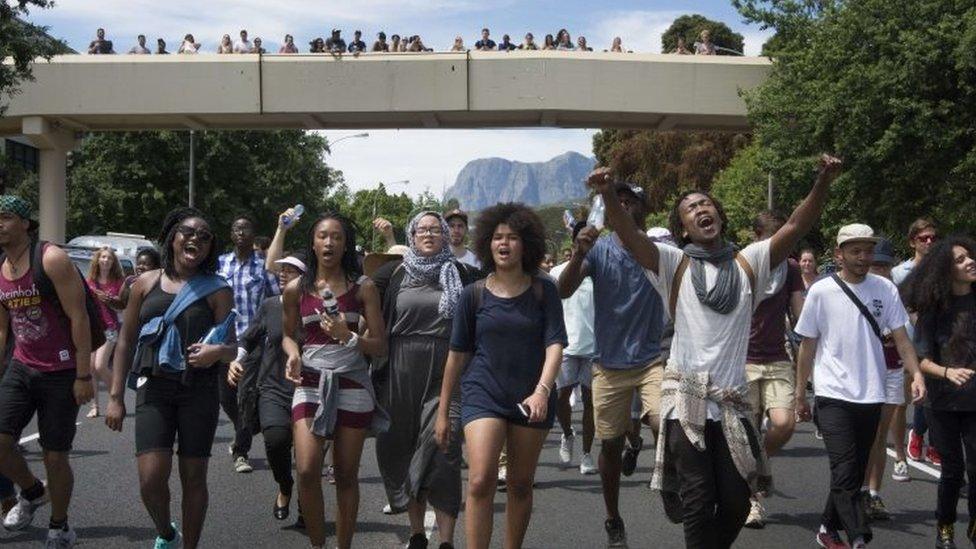
Many black students felt unwelcome at a university in their own country of birth.
The reinforcement of the institutionalisation of Afrikaans by the apartheid government when they came into power in 1948 was in part a continuation of the Anglo-Boer War.
The Afrikaners were expressing their desire to free themselves from the domination of British colonisation and therefore from being forced to speak English.
How ironic that 67 years later, the headquarters of Afrikaans drops it for English but this time for the greater good of all South Africa's people.
The pro-Afrikaner civil rights group AfriForum is not happy.
Its deputy head Alana Bailey described the move as discriminatory.
"It is clear the [University of Stellenbosch] management cannot even be trusted to maintain the partial presentation, but wants to make an effort to further marginalise Afrikaans and discriminating even more drastically against Afrikaans-speaking students," she said in a statement.
However, the final say lies with the university's council that will make a decision on 30 November.
It may face fierce opposition but is likely to be passed.
- Published2 September 2015
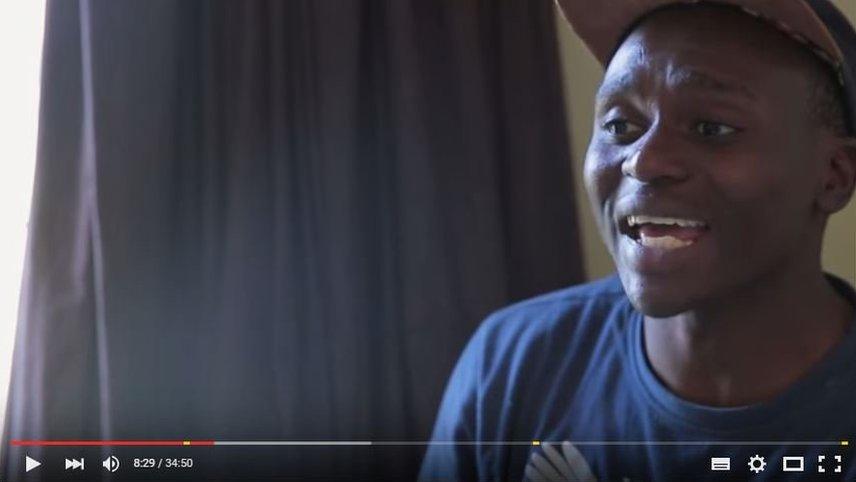
- Published28 October 2015
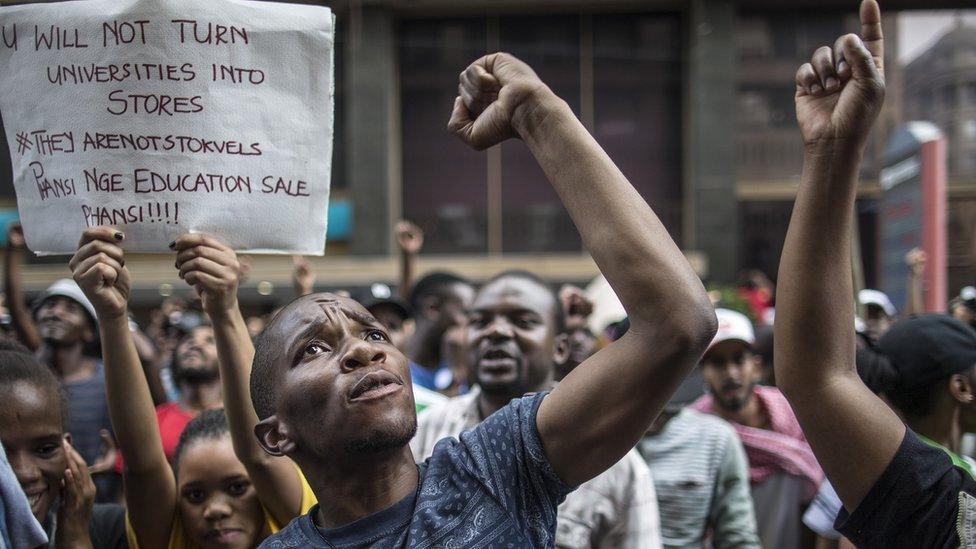
- Published23 October 2015
